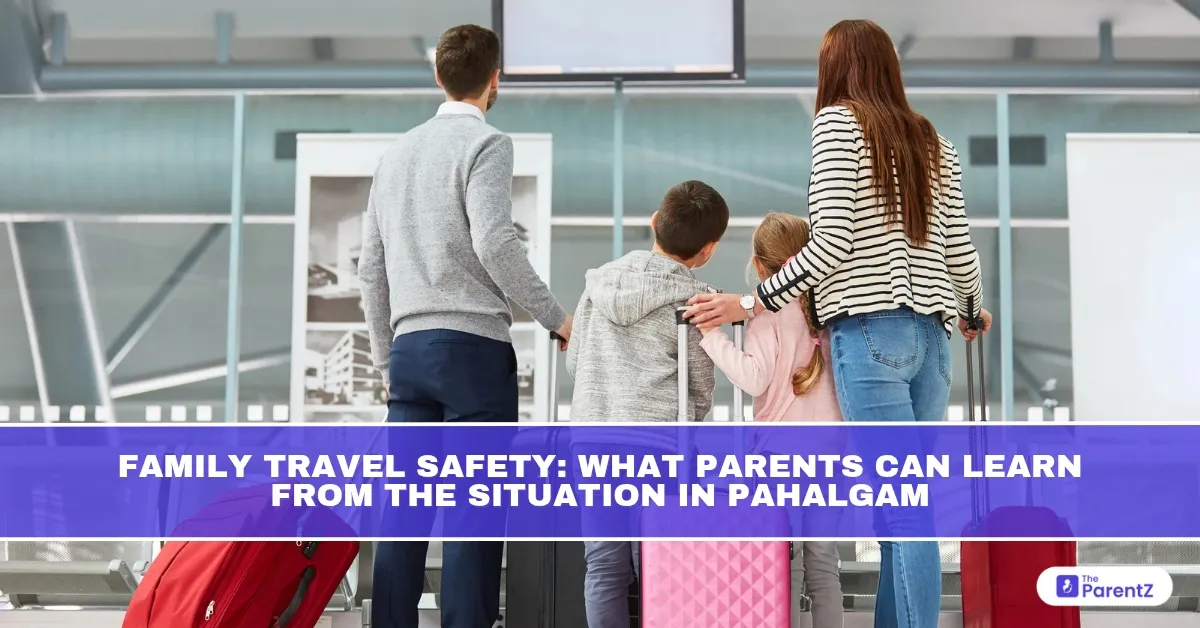The recent tragic events in Pahalgam's Baisaran meadows have shaken many of us to our core. As the community mourns the loss of at least 28 lives, including foreign tourists who were simply enjoying the natural beauty of Kashmir, families across the country and beyond are grappling with difficult questions about travel safety. Our hearts go out to all those affected by this senseless violence, and we stand in solidarity with them during this unimaginably painful time.
For parents who enjoy traveling with their children, this incident raises important concerns about family safety during vacations. While we shouldn't let fear dictate our lives or prevent us from experiencing the world's beauty, recent events remind us that thoughtful preparation is essential. This tragedy offers some difficult but necessary lessons that parents can consider when planning future family trips.
Research Beyond the Brochures
The Pahalgam tragedy highlights the importance of thorough research before choosing a family vacation destination. While tourist brochures and travel websites often highlight only the positive aspects of a location, parents should:
- Check government travel advisories regularly, not just once before booking
- Research the recent history and current situation of potential destinations
- Join family travel forums where parents share real-time information
- Understand the geopolitical context of regions, especially those with histories of conflict
- Identify areas within otherwise safe regions that might pose specific risks
This research isn't meant to frighten but to empower families with knowledge that can inform better decisions about where, when, and how to travel.
Pro Tip: One of the best ways to get trustworthy information is by visiting the official tourism websites run by Indian state governments.
Creating Family Safety Plans
One of the most important lessons from the Pahalgam situation is the need for concrete family safety plans. Parents who were caught in the attack had to make split-second decisions while protecting their children. While no plan can account for every scenario, having basic protocols in place can make a critical difference:
- Establish meeting points in case family members get separated
- Ensure each family member, including older children, has emergency contact information
- Teach children to identify safe authority figures in different environments
- Practice basic emergency responses appropriate to your children's ages
- Discuss "what if" scenarios in age-appropriate ways without causing anxiety
- Consider purchasing emergency communication devices for areas with limited phone service
These conversations need not be frightening for children when framed as normal preparation, similar to fire drills at school.
Staying Connected and Informed While Traveling
During the Pahalgam attack, information became a crucial resource for those in the area. The J&K government quickly established emergency helplines, but many tourists had no way of knowing these numbers existed. While traveling:
- Register with your country's embassy or consulate in the destination country
- Keep a list of local emergency numbers easily accessible
- Consider using travel apps that provide safety alerts for your location
- Establish regular check-in times with family members back home
- Be aware of your nearest embassy or consulate location
- Follow local news sources during your stay to remain informed about developing situations
Staying connected doesn't mean constantly worrying, but rather maintaining awareness of your surroundings.
Teaching Children Situational Awareness
While parents naturally want to protect children from worrying about safety, age-appropriate lessons in situational awareness can be empowering rather than frightening.
For younger children, this might mean simple rules like staying close to parents in crowded places. For teenagers, it could involve more detailed discussions about recognizing potential dangers and making good decisions independently. These skills serve children throughout their lives, not just during travel.
Supporting Children Through Exposure to Difficult Realities
When tragedies like the Pahalgam attack occur, children traveling in different parts of the world may hear about them. Parents traveling with children during such events face the additional challenge of helping their children process this information while away from home.
Creating space for children to express their feelings about troubling news, even during a family vacation, helps them develop emotional resilience. Balancing honest conversation with reassurance about the measures being taken to keep them safe allows children to process difficult realities without becoming overwhelmed by them.
Stay Calm and Reassuring
Children pick up on their parents’ emotions. In uncertain situations, staying calm and speaking reassuringly helps reduce their anxiety. Let your children know that you are watching out for them and that many people are working to keep everyone safe. This builds their confidence and helps them feel secure even in unfamiliar places.
Moving Forward with Compassion and Courage
The Pahalgam attack reminds us that no place is completely free from risk, but careful preparation and thoughtful parenting can greatly reduce dangers during family travel. By researching, planning, and communicating openly with our children, we can protect their safety and create positive travel experiences filled with joy and security.
In a world where unexpected events can happen, parents are the strongest shield for their children. Let’s learn from difficult moments like Pahalgam and travel with both caution and hope, keeping our families safe every step of the way.








Be the first one to comment on this story.